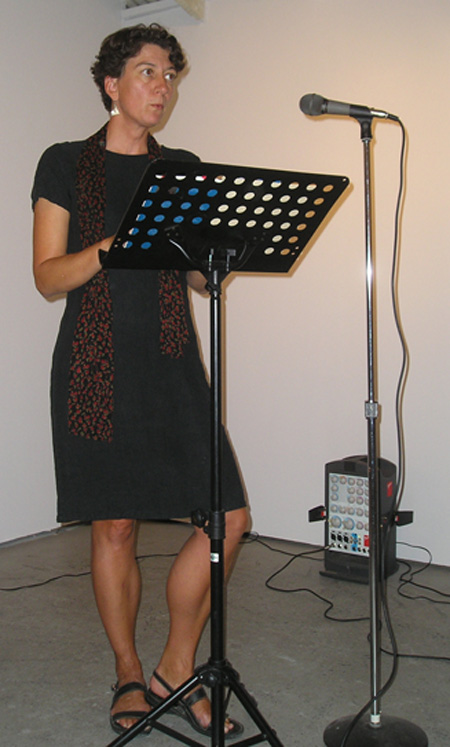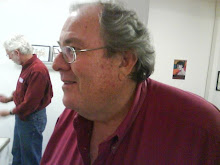
Ann Keniston started the evening by reading from her book The Caution of Human Gestures with a poem “Booze”, that venerates the many forms of the intoxicating substance’s mood altering ability.
she scarcely notices she’s lost
first appetite, then thirst
for water, that she’s become
accident-prone, so
when at last she sees
her obligation to
what it’s made of her,
she feels unloosed, released.
The next poem she read was “Our Alliance” a poem about herself and her sister, who both relate to her mother’s reaction to the news that their father was remarrying by leaning on each other a little more heavily, but not too heavily.
“Bric-a-brac” starts out with a joke between two buddies about what heaven will be like. The poem then transforms into a reflection on the persistence of the lover’s body even when it is not immediately present.
“Persephone in Autumn” uses the voice of Persephone filtered through her “I” to arrive at the last stanza:
As if my love of sweetness
proves I know nothing
of bereavement, as if
I’ve gathered up
All the gold on earth to buy
What only confirms my poverty.
Read the full poem here
“Unwritten Poems” is written for all those gentle readers who will tolerate the miscues in all of the failed poems that don’t quite reach full blossom. In the poem Keniston imagines the fate of these failed poem.
And I like to imagine a reader
so distracted or naïve, she’s never heard
the confessional impulse is doomed
in contemporary literature or poetry
must be succinct and precise, who’s so eager
to locate her own Loss, History, Happiness
that she lifts the offered sheaf
and admires most what’s earnest, filled
with yearning, and flawed.
“The Bridge” is typical of several of Keniston’s poems in that it starts with a dream sequence and then follows up by considering it. The dream symbol of a bridge is used to reflect on the life with a lover and how love is often used as a hastily adopted tool to measure what it has given us.
“A Lesson” reflects on the persistence of the human will as seen in the scene of watching a baby trying to crawl forward even though it is invariably moving backwards.
“Second Language” peers in on a childhood episode where the speaker reflects on traveling in another country where one doesn’t speak the language, which is not all that different from journeying into the incomprehensibilities of love.
“Happiness” was the last piece from her book The Caution of Human Gestures
Happiness
It accomplishes no realignment
of light on just-yellow
willow or pavement
inflected toward late sun.
And the fugitive sparrown rise up in a clap
And turn and vanish, incising in air
a not-
visible shadowof their passage. Like Cezanne’s
black-rimmed peaches: the outline
covered by that orange-pink
overlay, both pure form and
devoid of form. The happiness is
the underlayer. And the porous, blurred surface,
what we pass through, having risen
out of the subway and
dispersed.
Keniston’s portion of the reading concluded with several new poems, “An Allegory,” an attempt to get the “I” out of the poem. She read two elegies for her mother, imaginging her still healthy in one and in the other imagining her mother’s grief. Fially, “Ars Poetica” concluded the evening for her.
[Note: Other Ann Keniston poems can be read here and here]
June Saraceno started her evening off with a poem she had written with her students as she gave them an assignment of write a poem about a fairy tale. The fairy tale that Saraceno wrote on was Hansel and Gretel, and the poem was called “Finding my Way Back.”
The next piece “Hand-me-Downs” was derived from her experience as a child in North Carolina where a car accident at the beginning of the poem eerily turns into a situation that exposes corruption and lust within the community where it happens.
“Remembering Tinky’s” was a poem that was written in memory of a dilapidated drinking establishment.
Finally, Saraceno read from what is shaping up to be her next manuscript of dramatic monologues. The piece she did was in the voice of Xantippe, the wife of Socrates. In it, Xantippe exacts revenge on Socrates’s depiction of her as a scold by turning the tables on him and casting him a a bit of a layabout bohemian.
Thanks both to Ann and June for making the trek across the Sierras to join us. I think I can speak for everyone at SPC there on the 25th that we truly appreciate your commitment to the practice and distribution of the art form.





















No comments:
Post a Comment